|
Isn't this what I'm paying for, I question, as a message from Norton pops up to remind me that my backup has not been backed up recently and I need to address this. Especially in today's threatening climate, Norton stated how important it is to be protected, and of course, suggested additional Norton services. Then, I realized that I purposely positioned my backup to manual. I don't want to back up something not needed and take up more space, even if it is somewhere out there in the cloud. Also, I simply don't want to hold onto clutter and useless data. Of course, this means that I'm responsible for examining and accessing items that I feel are important. So, I should be thankful to Norton for reminding me.
You may know that I play with tech terms and use them as an overlay to explore personal experience and always check official tech term definitions for hidden insights. ComputerHope.com gave this definition for backup. "A backup is a copy of important data that is stored on an alternate location, so it can be recovered if deleted or it becomes corrupted." Nothing new here. As I was thinking about this, I wondered if I had "corrupted" any of my old data, especially over the past couple of years. Have I become less trusting of people, my environment, the future? Ah, ha! An idea surfaces - a forwardup software is needed as much as a backup! A forwardup app would keep the user focused on important personal goals and dreams so they don't become eroded from the fears and concerns that plague our world today. I don't mean an ordinary wellness/health app that records steps, or measures heartrate, calories, sleep patterns, or offers a whitewash of Pollyanna-positive sayings. Forwardup would be more of a psychological antibody that would propel personal inspiration, hope, trust. It would provide a sense of vitality and quality that ensures momentum, one not burdened with the need for protection, but for motivating true potential. Interestingly, I read today that Japan has created a software for the metaverse that causes the participant to feel pain. "Why," I asked myself. "Of course," I reply, as I read further, "to make the metaverse seem more real." This is referring to physical pain and not mental or emotional anguish. With the metaverse in its initial stages and with the issues that face us today, it seems a crucial time to declutter, access what's important, and to focus on what we're individually and collectively creating - to backup and forwardup. Beware of what you're backing up; it's much more difficult to build a dream if your expectation is corrupted. It's a journey, a strange one at times. Join me Merry Metaverse!
I know I'm not the only one hearing the trumpets sound and angels sing. The geek gods all agree the Metaverse is on the horizon, so jumping on Mark's new ark now only makes sense. It seems simpler than moving to a new planet, as Stephen Hawking suggested. At the start of 2016, Hawking warned about the dangers from nuclear war, global warming, genetically-engineered viruses and artificial intelligence (AI). Not very merry. He suggested that within 100 years we should colonize a new planet to save humanity. I'm sure many are preparing for this move, but I think Mark's message is merrier and keeps with the spirit of things. "It will make us more present with those we care about, and it will reshape our world and our relationship with technology." It sounds exciting to me! And with my cyber-self fully functioning, I can just extend it into the Metaverse. Of course, I would need to purchase the necessary gear. We all know consumerism is sacred and keeps the world safe. So in the spirit of teamwork, I'll fill my Amazon cart and add a few things to my wish list for Santa! Simple, safe, sacred, and swift (with Prime)! You may remember that I play with tech terms and use them as an overlay to explore personal experience. I always check official tech terms for hidden insights. I have never read so many definitions for one tech word. Here's a simple definition from Merriam-Webster for metaverse. "In its current meaning, metaverse generally refers to the concept of highly immersive virtual world where people gather to socialize, play and work." Evidently Merriam-Webster wants some wiggle room with its lead-in positioning, "In its current meaning...." Yes, everything is subject to change. It's almost too obvious to state, and yet, I am thankful for this. Thankful, not because I want to immerse myself further into a virtual, augmented, pre-coded world, but because I envision a world in which good will is shared by all. This would truly be a miracle. And I believe in miracles. Here's an idea - maybe I should change my cyber-self to Meta-me! It's a thought. The SEARCH is always on. Join me I grow tired of being misunderstood and corrected, by others as well as myself. Stop second-guessing. Flash floods can be unpredictable and precarious; ideas can have the same outpouring force. Usually there is a pressure build up before either. I probably don't have the best content management system (CMS) in place, but I feel my perspective is valid and valuable. I voice it regularly as friends can attest, although there is a huge amount of silenced chatter that streams through my mind. No doubt, I'm not alone. I began wondering about a different, more effective system of self-organization and expression, keeping in mind that my values and beliefs hold precedence. I believe in spontaneity and following the impulse and inspiration of new thoughts and ideas. This process doesn't appear structured on the surface, but I sense there is an inner organization that calculates algorithms of potential beyond my conscious capacity. Interestingly, I attended a poetry workshop using the wiki format for creating a self-portrait poem. This opened the flood gates and allowed me to wonder further about wiki, which is a content management system.
Here's a simple definition from dictionary.com for wiki. "A website that allows collaborative editing of its content and structure by its users." WhatIs.com adds, "A wiki website operates on a principle of collaborative trust. Wiki programs allow users to create and edit content." As you may know, I'm fascinated with tech terminology and use it as an overlay for personal experience. I'm excited by what I've read and explore further. LifeWire states, "Through a collaborative effort, we are able to create a resource that is superior to anything that we could have accomplished alone." I feel like I've struck gold with wiki. Notice the key words being used: collaborative, content, structure, trust, resource, create. These concepts make an ideal foundation for any structure - a corporation, culture, nation, self. Racing beyond ideas for restructuring my personal CSM, I began to imagine a Wiki Nation where everyone's content, voice, expression adds to the whole. Forget political parties, voting, branches of government. It's simple. We each contribute and express our content, edit it with new ideas and inspiration, collaborate, and create a resource superior to anything that we could have accomplished alone. All solutions are in place, the wiki software provides the structure and organization - it's a CMS. Making a wiki account is free. What are we waiting for? I'm envisioning a wiki world! Join me. I've been fonting around with some odd characters lately. Hanging out at local breweries and coffee houses for open mic poetry readings shines a spotlight on apertures I didn't realized existed. It's interesting to learn new things, see different type-faces, styles, and there have been some Wingdings! My fascination with exploring the self and its many aspects naturally lends to character analysis. Little did I realize this would lead to examining spines, ears, arms, shoulders, tails, hairlines, and some very stressed characters. Along with this exploration I've discovered being bold, italicized, and freeing one's imagination can unleash unique personal expression, which benefits poetry, not necessarily relationships.
Honestly, who doesn't feel like a bold, italic, 72-point expression at times? Whether it's Franklin Gothic, Lucinda Bright, Perpetua Titling or Gil Sans - each offers individualized style and expression. I am even beginning to understand Wingdings, which renders letters as a variety of symbols. It is better not to over analyze, just allow the feeling and meaning to unfold. The format is creative and its purpose was never meant as a method for writing sentences. It's more like poetry than prose. One definition states that Wingdings are meant as an ornament, to adorn a document. I know a few people like that, too. Typefaces and fonts are more complex than I realized. I never would have guessed that I'd need to look up a definition for "stress character." I know more than a few people that fit this style. As you probably know, I'm fascinated with computer terminology and use it as an overlay for personal experience. Fonts.com's definition for stress is "the direction of thickening in a curve stroke." I can definitely feel the direction and the intensity thickening when I'm stressed. No question. Here are just a few other font related definitions. "Ear - The small stroke that projects from the top of the lowercase g. Arm - A horizontal stroke not connected on one or both ends. Shoulder - A curved stroke originating from a stem. Tail - A descending stroke, often decorative. Hairline - The thin strokes of a serif typeface. Aperture - The somewhat rounded negative space in some characters." I can't help but chuckle as I read these. TechTerms.com gives this definition for font. "A font is a collection of characters with a similar design. These characters include lowercase and uppercase letters, numbers, punctuation marks, and symbols. Changing the font can alter the look and feel of a block of text. Some fonts are designed to be simple and easy to read, whiles others are designed to add a unique style to the text." The same holds true for individuals, too. We each have our unique style and perspective - some easy to read, others are a bit more difficult. We each add to the overall document of the day, our template in time, and to the context of our world composition. Odd Characters, for sure. As for fonting around, it's been fun. The SEARCH is on. Join me. Maybe I'm shifting around too much, not conforming to standard, or simply unsuitable. Where's the foundation? Platforms can be precarious. They are meant to be secure, solid, and able to handle performances of many kinds. But I'm finding it is more about cooperation. Platforms need you to perform (or conform) to a standard they support, and you need them to be solid and secure so you can perform. Imagine stepping from one paddleboard to another. As the weight shifts, the paddleboard platform is affected, and the balance is off, although the platform remains solid. This is of course unless there's some fancy footwork in play - so maybe, cooperation and agility are needed. Another thought is that one platform, however foundational and secure it might be, could crumble under the weight or influence of an unsuitable structure - there has to be compatible pairing. Beyond endless analogies, the point is that my platform is askew and everything seems a bit wobbly.
As you probably know, I play with tech terms as an overlay for personal experience and always check tech definitions for hidden insight. Here is PCmag.com's definition for platform. "A hardware and/or software architecture that serves as a foundation or base. Simple enough. Techopedia's explanation ventures further. "New standards-based interfaces and open interfaces allow application programs to run on multiple platforms. Additionally, software developers have developed new software tools that allow applications to run on multiple platforms. This has given rise to the terms cross-platform software and multi-platform software." Once again, I've found it - the reason for the sense of wobble in my world. I knew the disruption was deep-seated, which caused me to consider the base of my structure. I have continued to pile things up - ideas, beliefs, dreams, imaginings, as well as must-do, standard performances onto one base. It hasn't been a smooth organization or blending, but more a clamoring about. Open interfaces, cross-platforms, multi-platforms are just what I need. I expect open-interfaces will welcome new ideas, beliefs, and dreams. Cross-platforms will encourage a creative commerce and communication within my own self-processing. Multi-platforms will be able to support new features, potentials, and possibilities. I'm set! Yet, I wonder (on my new platform) - what if the world set new standards with open interfaces and multi-platforms? Would there be less wobble in the world, a new sense of stability? Would cross-platforms expand boundaries, beliefs, commerce, and cooperation? It would take some fancy footwork on multi-platforms! Precarious, no doubt. Doable? I imagine it is. Join me. I've been warned. I was preparing to write this piece when the Blue Screen of Death (BSoD) took over my computer. I feel certain it was a foreshadowing event. Maybe I should reconsider the topic and my irreverent thoughts. Spending two hours on the phone with Norton to help with the BSoD even further cast a looming feeling, but some things simply can't be denied. Mixed (up) Reality is one of them.
Isn't it obvious our reality is already mixed up? Do we really need to add to it AND purchase more devices to further integrate it/IT? Blasphemous, I know. I'll be condemned by the IT overlords and even more so by my cyberself for not following (purchasing) lockstep. But, I have enough to deal with and it's evident the world does, too. I am losing my way and probably my soul, but so far, my zealousness for using tech terms as an overlay for personal experience has not faltered. Here is TechTerm.com's official definition. "Mixed reality is a blend of physical and virtual worlds that includes both real and computer-generated objects. The two worlds are 'mixed' together to create realistic environment. A user can navigate this environment and interact with both real and virtual objects." Again, I don't need any help with mixing up my reality. I'm an expert. I know how to code confusion, and I code my peculiar sense of clarity rather well, too. I realize my perception and beliefs upload my virtual world. This is true for everyone - we each live within our own virtual worlds. This makes a mixed up reality - unique perspectives mixing and merging, continually moving in and out of alignment, sometimes out of recognition, and often into something new. It's not a bad thing. Although, it is often confusing, complex, and challenging. And yet, our mixed up reality is also colorful, capable, incalculable, and most of all, creative. Algorithms, data, and computer-generated objects are only a piece of the puzzle. I'm walking on thin ice and feel the need to back step a bit. I'm not vowing independence from IT, nor am I an anti-IT revolutionary. I like my Facebook friends and Siri and Alexa. And yes, my phone is an appendage. Perhaps all we really need is to code more compassion. Amends made, shadow lifted. The SEARCH is on. Join me. My pop-up blocker isn't working. I notice that I continue to be tracked by sites I've visited. Possibly the unpurchased items in my shopping cart cause a counter-block to my pop-up blocker. "She loaded the cart and is now fair game" is the possible behind the scenes tech-to-tech communication taking place. Sometimes I will add an item to the shopping cart and click out, hoping to be offered a discount or free shipping to complete the purchase. It all seems like a game. The rules change as the game continues. Points and purchases are made, paid, promised, and sometimes lost. All of this transpires while I'm supposed to be working, only to be interrupted by a pop-up.
You may know that I'm obsessed and play with tech terms as an overlay for personal experience. Most everyone knows what a pop-up is, but here is Wikipedia's definition. "Pop-ups are forms of online advertising on the World Wide Web. A pop-up is a graphical user interface (GUI) display area, usually a small window that suddenly appears in the foreground of the visual interface. The pop-up window containing an advertisement is usually generated by JavaScript. They can also be generated by other vulnerabilities/security holes in browser security." Pop-under is new to me, at least the term is. Wikipedia's definition continues. "A variation on the pop-up window, the pop-under advertisement, opens a new browser window under the active window. Pop-unders do not interrupt the user immediately, but appear when the user closes the covering window, making it more difficult to determine which website created them." Wonder if you need a specific pop-under blocker. The game continues. Obviously, I get derailed at times. We all do, whether it's a pop-up or pop-under distracting us from our goals. Lately, I've been observant of the "pop-ins." The pop-ins are what I call an "intrusion of thought" that happens as I'm focused and busy. The thought has a different mental texture or feel, very similar to a "small window that suddenly appears" in front of my normal thinking/active window. In the past, I would click out of the pop-in because I felt I needed to complete a task and be productive - a straight line is the best course to a goal, we've all been told. Now, I pay attention. As I thought further about this, a pop-in would not pop in if I had not initiated the connection or "visited the site," possibly while imagining or playing on the site of a new idea. On some level, I must be engaged. Maybe a pop-in isn't a distraction, but a direction with another means to benefit an outcome. Maybe there isn't a straight line to an intended goal. Maybe the pop-in is more practical than first considered. And maybe, just maybe it offers something more significant than the intended purpose. After playing around with pop-ins for some time, I've found this to be true. I'm now wondering about pop-unders. Do they surface as we dream? Again, the game continues. And yes, there's a pop-up on this web page. The blocks are off, and the SEARCH is on. Join me. You know when you have one of those rare moments of true clarity - when everything falls into place? I'm not there. Or at least, I didn't know I was until recently. In fact, my whole system was disrupted, not completely crashed, but significantly disrupted. I could have identified it as malware or a virus, as a professional suggested, but I took the approach it had been disrupted for another reason, something more meaningful.
First, let's go straight to the tech definition for Disruptive Technology. You may know by now that I'm fascinated by computer terms and use them as an overlay for personal experience. Here's TechTarget's definition. "A disruptive technology is one that displaces an established technology and shakes up the industry or a ground-breaking product that creates a completely new industry." Here are several obvious examples: personal computers, cell phones, social media. Investors are always on the search for disruptive technologies to create new business opportunities. Circling back to my disrupted system, there's no need to explain my personal situation, because it could be anyone's experience that rocks them to the core, along with extending hopes for significant change and growth. It could include many different types of systems - physical, mental, emotional, relational, spiritual. When a system is disrupted, it causes one to pause. With this in mind, I looked further and found that Clayton Christensen, a Harvard Business School professor, coined the term in 1997 in his best-selling book, "The Innovator's Dilemma." Christensen separates new technology into two categories: sustaining and disruptive. "Sustaining technology relies on incremental improvements to an already established technology. Disruptive technology lacks refinement, often has performance problems because it is new, appeals to a limited audience and may not yet have a proven practical application." This is where things began to come together for me. I identified - lacks refinement, appeals to a limited audience, performance problems, may not have a proven practical application. I'm home! I'm not broken, or fundamentally flawed. I've just been working on an ineffective model, and now, I'm orienting to innovations that may be disruptive, but the beginning of a new industry, say, of myself. The reason. The orientation is happening, and the SEARCH is on. Join me. I had no idea you could buy and breed cats online, until doing research for this post. Did you know that your Kitty needs time to rest after it breeds? A rest period afterward is a regulation in the CryptoKitty video game. Seriously. Here is how it reads on the CryptoKitty website. "Every CryptoKitty knows that making babies is hard work. As a result, your Kitty needs time to rest after it breeds. This is call the Kitty's cooldown." The "cooldown" means your Kitty will be inactive and not able to advance in the game or help the player make a profit (my translation). Being sidelined can last anywhere from one minute to one week depending on their generation and several other factors. The rules and guidelines for this video game read like a genetics class. There are many things to consider: cat types, traits, genes, mutations, and then, there are the family jewels. And I'm still not certain of the game's objective.
As you may know, I am fascinated with computer terminology and entertain myself by playing with it as an overlay for personal exploration. Here is Wikipedia.org's definition for video game. "A video game is an electronic game that involves interaction with a user interface to generate visual feedback on a two or three-dimensional video display device such as a TV screen, virtual reality headset or computer monitor. The electronic systems used to play video games are called platforms." I am not a video player. Games are one of the first things I uninstall when I purchase a new computer. However, I know many people enjoy connecting with others and testing their skills with video games. The U.S. video game industry revenue reached $43 billion in 2018. It's big business. And obviously, people like to play games. Let's play with this idea - I know it isn't new, but just play along. Consider your everyday experience as your user interface. You are generating far more than visual feedback - audio information, thought computations, and then, there is emotional data, which makes this a very complex game. Unlike the rules listed on the CryptoKitty website, every time "you buy, breed, and create an auction, you pay a fee." It seems as if there is a fee every time we turn around, but basically it's a distortion in our monitors. There are many things you can do without paying a fee. An important point to remember with this game is that our most valued traits cannot be bought. It adds to the complexity and challenge of the game. Also, don't forget the two-dimensional and three-dimensional monitor difference to factor in. Now, consider all rules and regulations. Usually, people don't get upset when reading the directions and guidelines to games - it is just the way the game is played. They may be confusing, but it's nothing personal if you choose to play. In this game many get extremely unsettled and agitated. Think tax season, as an example. Again, the complexity is kicked up a notch. And last, think about everyone having a different electronic system and platform, there is no doubt this adds to the challenge. And what is the objective? And where are the family jewels? The game is on, and so is the SEARCH. Join me. Bloatware. It's everywhere - news, phones, bodies, traffic, social media, egos. So many things today seem bloated and out of proportion. I merely want my coffee black, not a Cold Foam Dark Nitro. I appreciate an actual phone call from a friend. When I check out of Amazon I don't want insurance, recommendations, care what someone else bought, want to know what I recently viewed, or to continue watching anything. I just want to check out because I'm probably avoiding something I really should be doing anyway. I don't need to check the weather online before I go outside. I don't need to know how many steps I take in a day, or ten foods to avoid, or 50 best anything. It's bloatware. Although thinking about it, I do like the add-on tasting stations at Costco.
As you may know, I'm fascinated with computer terminology and use it as an overlay for personal exploration. Here's Techopedia's definition for bloatware. "Bloatware is software that has unnecessary features that use large amounts of memory and ram. Software comes to be known as bloatware when it becomes so unwieldy that its functionality is drowned out by its useless features." Also, it is unwanted software included with a new computer, like games, shopping outlets, and trial software. I am quite capable of being unwieldy and drowning out my own functionality. I don't need superfluous news, financial advisors preaching doomsday, or alarming health articles. These all need to be uninstalled. They drain the system. And then there is the camouflaged bloatware that you may not know exists. It's not considered something extra; it's a part of the whole. It's just the way it is, or life is, or the way things are. You can't change it. Beware. That is until the system becomes perceptively slower - fragmented, clogged, continually looping. I've been there. Our governing system is often there. This congestion and sluggishness appears often during transitional times when updating to a new system of beliefs and deleting old ones. When I feel this happening for myself, I check my inner dialogue. Clicking past excuses, pop-up emotions, unsolicited add-on advice, pre-installed responses is a significant start. And yet, not having them in your system to have to click past is better. Going straight to the source is optimal, always. The SEARCH is on. Join me. |
SELF SearchWe access the computer more readily than we do ourselves. LOG OFF Archives
March 2022
CategoriesSearch Engine: a program on the Internet that allows users to search for files and information.
|


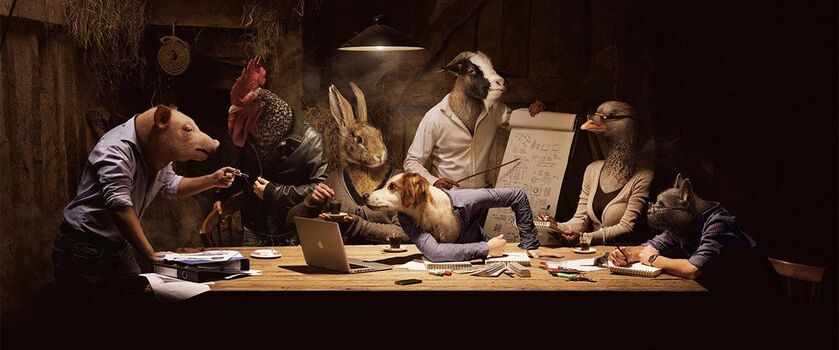
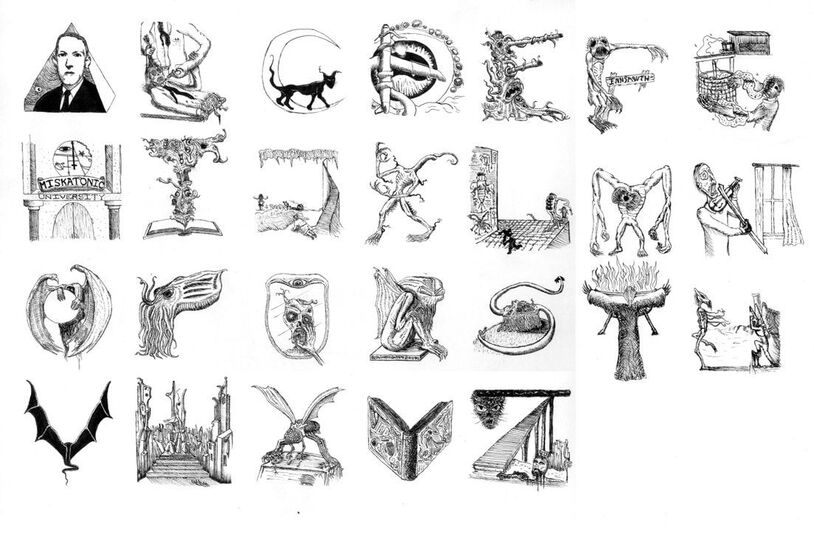

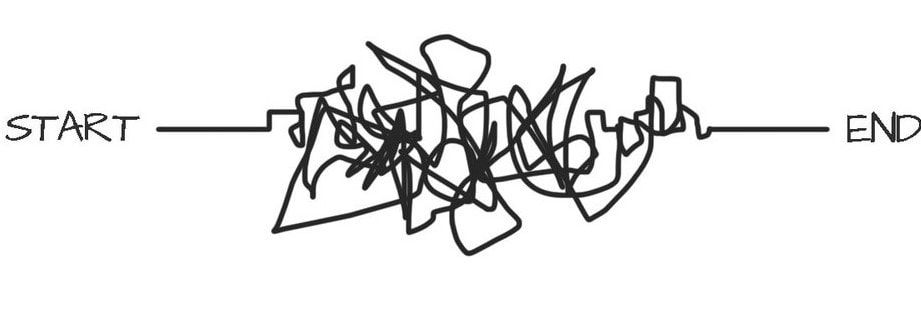
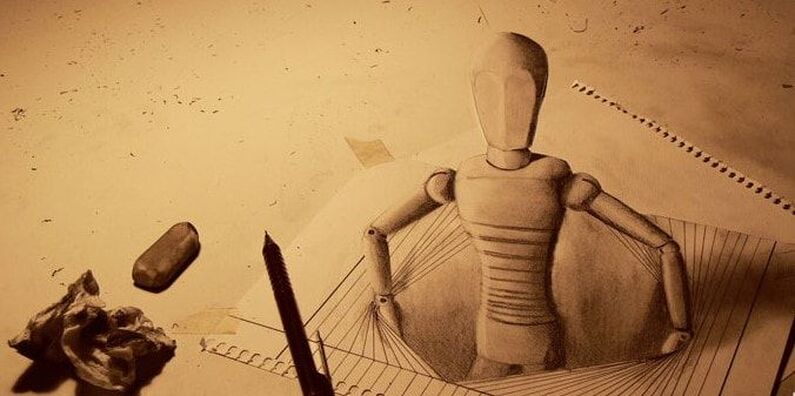

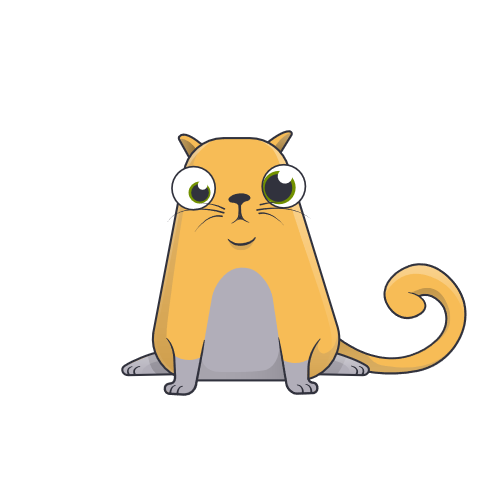

 RSS Feed
RSS Feed